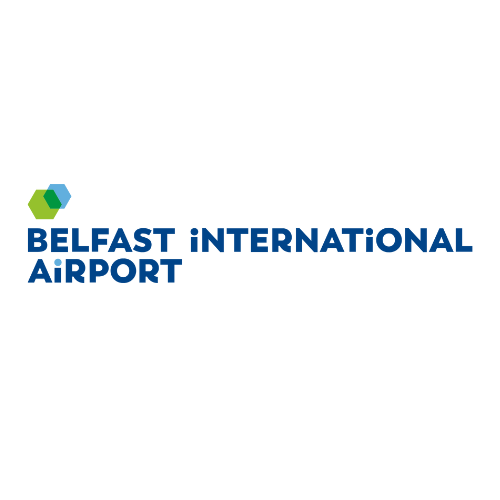Airports grapple with unique challenges in data analysis and customer understanding. From deciphering the journeys of diverse travellers — from business professionals to vacationing families — to managing various revenue streams like retail and parking, it’s a multifaceted task.
The challenges escalate as airports must adjust their operations to match changing passenger numbers affected by factors like time of day, seasons, and various events, all while allocating resources effectively in real-time.
These aspects demand a nuanced approach to airport data analytics that traditional tools like Google Analytics 4 (GA4) might not fully cater to. Airports need true end-to-end revenue tracking, real-time analytics, and robust data security to manage the complexities of modern airport operations.
With tens of millions of users, GA4 is one of the most widely used data analytics platforms available today. But is it the right data analytics platform for your airport?
The limitations of Google Analytics
- Limited customization options: GA4’s event-based model, while flexible, restricts the depth of custom dimensions and metrics. This affects detailed data segmentation and nuanced analysis, making it difficult for users to tailor analytics to their specific needs.
- Data sampling issues: GA4 extensively uses data sampling, which involves extrapolating insights from a subset of data. This can lead to inaccuracies and a limited understanding of user behaviour, especially in smaller data segments where detailed insights are crucial.
- Fewer attribution models: GA4 is limited to last-click and data-driven models, which may not fully capture the complexity of user interactions or the effectiveness of marketing channels.
- Complicated user interface: The organization and presentation of data on GA4’s interface can be challenging to navigate, potentially hindering quick access to key metrics and specific report setups. This may impact the efficiency with which users can extract and analyse their needed data.
Rezcomm’s integrated analytics is a more agile exploration of data
Leveraging real-time insights for enhanced revenue opportunities
Rezcomm’s real-time data analytics deliver immediate, actionable insights into customer behaviour and preferences. This enables airports to spot trends and potential revenue opportunities quickly. Acting on these insights, airports can tailor their offerings to align with customer needs, leading to increased sales and improved customer experiences.
User experience and interface
Rezcomm’s integrated analytical systems prioritise a user-friendly experience and interface, offering clear navigation and accessible reporting. This design allows users to quickly access and comprehend complex data, making insights more readily available and actionable and the overall analytics process more effective.
Customization and personalization
A key component of our integrated system is tailored reports and in-depth analysis options, enabling airports to focus on specific areas of interest for strategic decision-making. This level of customisation enables a deeper understanding of unique operational aspects, enabling airports to undertake more targeted data analysis and make informed decisions.
Comprehensive tracking of revenue changes
Rezcomm’s system offers airports detailed tracking of revenue, including changes and cancellations. This end-to-end tracking capability enables precise monitoring of revenue fluctuations and the impact of various factors on financial outcomes, crucial for effective financial management.
Versatile integrations and data privacy
This system can also integrate with various platforms, including GA4, while upholding stringent data privacy and security standards. Airports can combine insights from multiple sources, enriching their data analysis and strategic decision-making. At the same time, Rezcomm is fully compliant with the General Data Protection Regulation (GDPR) and ensures customer data is always protected. Rezcomm is also a PCI level One certified organisation.
Comprehensive analytics for varied needs
Rezcomm’s integrated analytical capabilities provide a 360-degree view of non-aeronautical revenue streams. Enhanced by Artificial Intelligence (AI), this approach aids airports in optimizing different revenue streams, from retail to parking, facilitating strategic planning and efficient revenue management.
Advanced analytical capabilities with Rezcomm
Web analytics
Rezcomm’s Web Analytics module helps airports optimise their operations, marketing efforts, and customer experience in a more streamlined and effective way.
- Better financial tracking: Airports can accurately track their earnings and understand the impact of changes like cancellations to make informed financial decisions. For instance, airports could use this data to refine their retail and dining area strategies, adjusting terms or promotions in response to observed revenue shifts due to flight cancellations or changes in passenger footfall.
- Compliance with privacy regulations: By using Rezcomm’s system, airports can ensure they are handling customer data in compliance with regulatory requirements including the GDPR, California Consumer Privacy Act (CCPA), and Virginia Consumer Data Protection Act (VCDPA), among others. Rezcomm does not share data with third parties, ensuring secure data storage so airports can safeguard their customers’ privacy and build passenger trust.
- Targeted marketing and service improvements: The analytics allow airports to tailor their marketing strategies and improve services based on specific customer behaviours and preferences. For example, if the data shows a high frequency of business travellers on certain routes, the airport can develop targeted marketing campaigns offering special lounge access or security fast track tickets for these passengers.
- Enhanced online presence: With the SEO tools provided, airports can increase their visibility online, attracting more visitors to their website. This could involve optimising their website with keywords related to airport amenities, which would rank higher in search engine results for these airport facilities, leading to increased web traffic.
- Customizable reports and analysis: Airports can tailor their analytics specifically to their needs, gaining insights most relevant to their operations for more strategic and effective management. For instance, an airport could customise reports to analyse foot traffic in retail areas, helping to determine the optimal placement of shops and services for maximum revenue generation. With no data sampling, Rezcomm’s reports are completely accurate and ensure the validity of your insights.
Business analytics through AI
Rezcomm’s Business AI Insights module uses artificial intelligence for comprehensive analysis and forecasting, significantly enhancing various aspects of airport operations.
- Optimise parking operations: Using predictive analysis, airports can manage parking demand effectively, enabling dynamic parking pricing and adjusting capacity to maximise revenue growth and meet customer needs. For example, during holiday seasons, the system might suggest adjusting rates to handle the surge in travellers while offering discounted parking rates during off-peak hours to encourage usage, smoothing footfall peaks.
- Enhance event management: Airports can use demand forecasting to prepare for increased traffic during events, ensuring efficient operations and customer satisfaction. For instance, an airport might allocate additional shuttle services and check-in counters during major sports events in the city.
- Improve staffing decisions: With accurate data on hand, airports can allocate staff more effectively based on predicted occupancy and demand patterns. An airport could, for example, schedule more security personnel during peak travel times identified by the AI system.
- Plan for expansion: Forecasting data can inform long-term planning and infrastructure development. For example, an airport might use these insights to plan new parking structures or expand existing ones in anticipation of future growth in passenger numbers.
Customer analytics
Rezcomm’s Customer Analytics module offers advanced, data-driven insights to optimise the passenger experience and customer satisfaction across various digital touchpoints, giving airports a competitive advantage.
- Optimise digital platforms: By understanding what browsers and devices are popular with passengers and visitors, airports can optimise their websites and apps for these platforms, ensuring a smooth customer experience. For example, if airports find that the number of mobile users is increasing, they might enhance their website’s performance on the most used mobile devices.
- Enhance user engagement: Analysing page engagement helps airports identify which areas of their digital presence are most attractive to customers, allowing them to improve content and design for better engagement. For example, if data shows high engagement on a page about virtual queuing, airports might enhance this page with more detailed information or easier booking options to further boost customer interest and usage.
- Improve marketing strategies: Insights into the effectiveness of marketing campaigns, along with customer segmentation analytics, assist in refining marketing strategies. This allows for targeting specific customer groups for higher impact and better return on investment. For example, airports could conduct an email marketing campaign with special offers for solo travellers, such as discounts at airport relaxation zones or duty-free shops, targeting this passenger segment to increase engagement and sales.
- Tailored services: Geographic data enables airports to tailor their services and marketing efforts more precisely, enhancing relevance and appeal for different customer groups. For example, they might send targeted email campaigns in different languages to international travellers, promoting specific airport services like currency exchange or international lounges.
- Passenger behaviour analysis: Analysing patterns in customer behaviour, such as purchase history and response to marketing, provides valuable insights for refining services and marketing strategies. For instance, if data shows travellers often buy travel accessories, airports could create special deals or display ads for these items in high-traffic areas, encouraging more sales.
Improve your airports data analysis with a superior analytics system
Integrated analytics systems like Rezcomm’s are essential for cost-effective and accurate data management, significantly improving customer satisfaction and engagement. Their ability to drive smart, data-driven decisions makes them a crucial tool for any forward-thinking business strategy. Download our brochure, watch our video, or get in touch to learn how Rezcomm can help you gather and obtain an accurate, end-to-end understanding of your airport’s data.




























